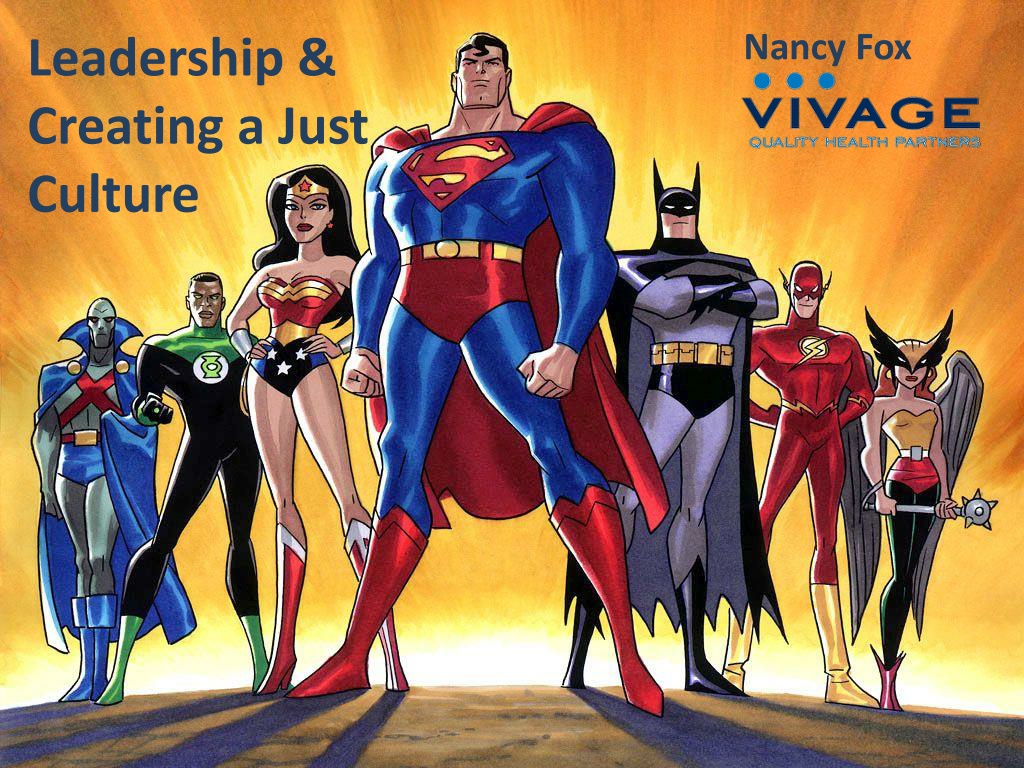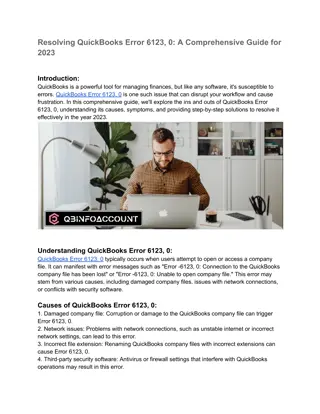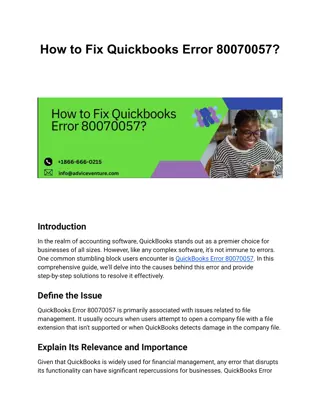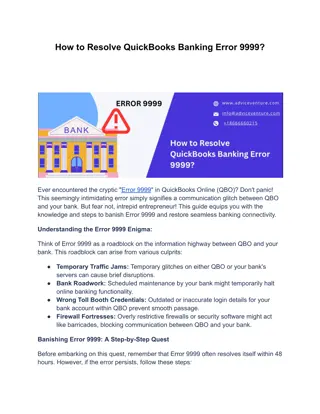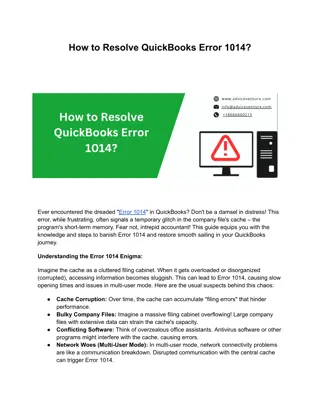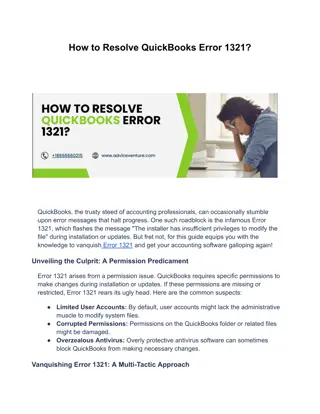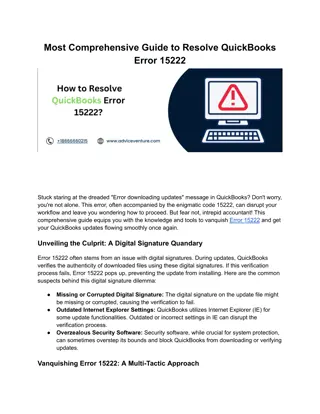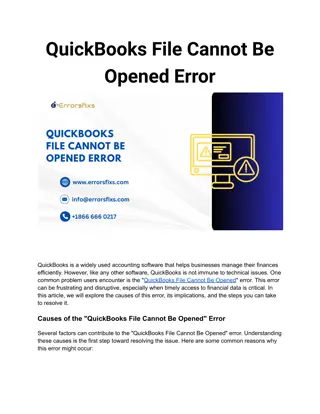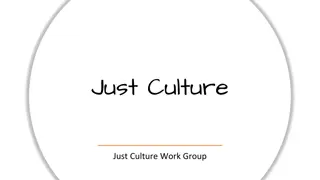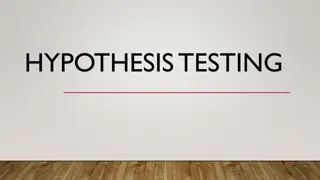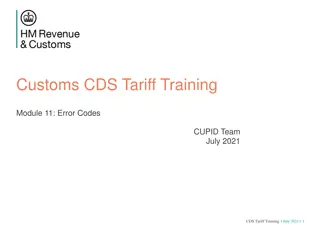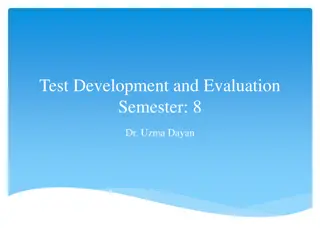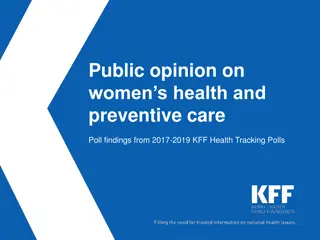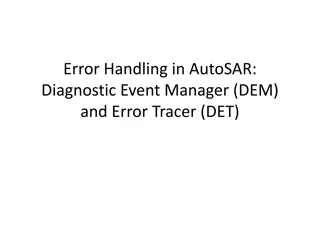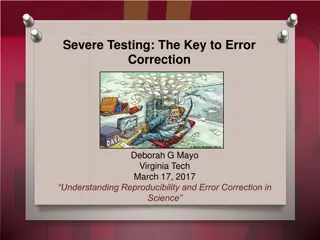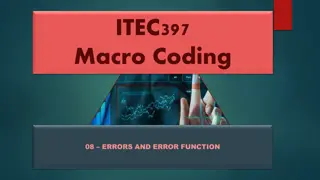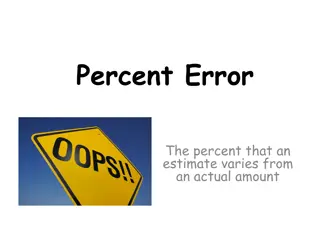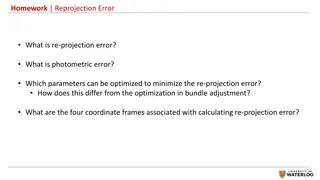Understanding Just Culture in Leadership: Creating a Fair and Error-Preventive Environment
Punitive culture in institutions can lead to mistakes being hidden, affecting error prevention. Dr. Lucian Leape highlights the importance of avoiding punishment for errors, advocating for a Just Culture model. This model, coined by David Marx, recognizes human error and helps differentiate between mistakes and deliberate choices. By fostering a Just Culture, organizations can value safety, encourage reporting errors, hold employees accountable for choices, and provide clear guidance on acceptable behavior. Creating a Just Culture is vital not only for reducing errors but also for nurturing fairness and justice in the workplace.
Download Presentation

Please find below an Image/Link to download the presentation.
The content on the website is provided AS IS for your information and personal use only. It may not be sold, licensed, or shared on other websites without obtaining consent from the author. Download presentation by click this link. If you encounter any issues during the download, it is possible that the publisher has removed the file from their server.
E N D
Presentation Transcript
Nancy Fox Leadership & Creating a Just Culture
Punitive Culture The institutional model created a name, shame, blame culture Accountability for errors lies with the employee Perfect performance is expected When not achieved, disciplinary action results Creates a culture where mistakes are hidden
A Punitive Culture The single greatest impediment to error prevention in the medical industry is that we punish people for making mistakes. Dr. Lucian Leape, Professor, Harvard School of Public Health, Testimony before Congress on Health Care Quality Improvement
Just Culture Person-Centered model offers us a different view Just Culture Model coined by David Marx, an attorney and engineer Recognizes human error Helps us distinguish between mistakes and behavioral choices
To Err is Human Human Error At-Risk Behavior Reckless Behavior Product of our current system design A Choice: Risk believed insignificant or justified Conscious disregard of unjustifiable risk I did a one person transfer with a resident who requires a two-person transfer because the resident needed to use the bathroom and everyone else was busy I knowingly avoided completing a treatment because it is complex and time-consuming I forgot to do the 2- hour check Manage through changes in: Processes Procedures Training Design Environment Manage through: Manage through: Removing incentives for at-risk behaviors Creating incentives for healthy behaviors Increasing situational awareness Remedial action Disciplinary action CONSOLE COACH PUNISH
Creating a Just Culture Employees know that optimal safety is valued When errors occur, they are seen as learning opportunities Reporting errors and near misses is encouraged and acknowledged Employees held accountable for choices, not mistakes Clear guidance about what is acceptable behavior and what is unacceptable behavior
Creating a Just Culture Important for more than just reducing errors Human-beings have an innate sense of fairness and justice People want to work and are happier in places where they perceive everyone is treated justly
It begins with leadership Leadership is a behavior, not a position People in positions of formal leadership who do not act as leaders hurt people and their organizations We need to discover person- centered leadership behaviors that lead to a just culture
Person-Centered Leadership finleism (noun): the act or process of defining something by what it is not Think of a time that you or someone you know was hurt or disappointed by a formal leader
No Blame Culture Do not make the same mistake that many who have entered the person-centered journey have made. Must distinguish between a just culture and a no blame culture A just culture has a higher accountability for both the formal leader and the employee
Creating a Just Culture Practice accountability Holding others accountable Punishment Accountability = Growth Growth = Caring Caring = Influence Influence = Leadership You can t be a leader unless you hold yourself and others accountable
Holding Yourself Accountable Do I have all the information before I make a judgment? Have I clearly communicated my expectations? Have I done a root cause analysis? Was this human error or a personal decision? Have I given this person everything he or she needs to be successful? Have I listened to the employee s reason for the behavior? Am I certain this is not where the employee will grow?
Holding Others Accountable How can I care for this person and help him or her grow instead of tearing them down? What does that look like?
Use only conditioned power Compensatory Power: the payment of money for services rendered or submission to the economic or personal purposes of others Condign Power: wins submission by inflicting or threatening appropriately adverse consequences. Conditioned Power: exercised by changing belief. Persuasion, education or the social commitment to what seems natural, proper or right causes the individual to submit to the will of another or of others.
Triple Crown Winners Stop settling for less Triple Crown Winners: Competent Reliable Great Attitude
Develop standards for conduct Everyone must understand and be held accountable to these standards of behavior Do not have to be long or complicated Creates a caring ethos and a sense of security for everyone
Embrace conflict management Everyone is trained in conflict resolution Managers are trained in conflict mediation The expectation is then communicated that all conflict will be resolved before it bleeds onto the Elders
Develop Principles for Ethical Decision-making What are the principles that will guide us in all of our decision-making Educate everyone on these principles Use a team approach to decision-making as much as possible
Engage & Empower Old Culture Thinking: I need to get buy-in of my staff. New Culture Thinking: I need my staff to take ownership. Ownership only comes from having a part in shaping the plan. You can not separate Authority and Accountability If you want people to be accountable, you must give them the authority that comes with it.
Daniel Pink Drive: The Surprising Truth About What Motivates Us The course of human freedom has always moved in the direction of more freedom. And there is a reason for that because it is in our nature to push for it. The secret to high performance and satisfaction - at work, at school, and at home is the deeply human need to direct our own lives. We are born to be Players, not Pawns.
Hire Nice People Not just capable workers Use a team approach to hiring Engage the Elders in the process Ask question that reveal how caring the person is (Share with me the nicest thing you ve ever done for someone.) Engage everyone in observing behaviors that might indicate compassion and caring
Advice for Formal Leaders You no longer have the answers. You only have the questions.
Questions are powerful Empower others What do you think we should do about that? Enlighten and call to do the right thing How is it good for the resident for you to do that? Educate others What did you learn from that experience? Inspire others Why are we here? Show people you care Do you have everything you need to be successful today? Show what you appreciate and value How were you able to accomplish that? I am amazed! Uncover problems What is your greatest challenge today? Lift people up Do you know how special you are?
Creating a Just Culture Design safe systems Remove opportunities for errors risk management Perform a root cause analysis when an error occurs Provide excellent training and re- training in core competencies/systems Manage system performance through outcome data Build a supportive structure for when errors occur train staff to respectfully catch each other s mistakes and correct them
